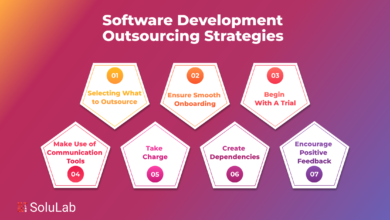The Role of Digital Customer Service Solutions in Shaping the Modern Call Center

Feeling overwhelmed by the deluge of customer calls? With hold times stretching longer while abandonment rates rise, it’s clear agents alone can’t offer the instant, tailored service today’s clients expect. Forward-thinking centers are embracing digital helpers like AI-powered chatbots to resolve routine questions around the clock through self-service. This enables your team to focus their personalized touch on the trickier, human issues that matter most.
The future isn’t man vs. machine – it’s a savvy pairing. Leveraging automation to complement skilled agents is a win-win for efficiency, costs and customer satisfaction.
AI and the Virtual Assistant: A Dynamic Duo
Once confined to sci-fi, AI now plays a starring role in everyday business. By 2022, Gartner predicts that chatbots and virtual assistants will handle a staggering 70% of customer interactions, slashing associated costs by 30%. The upshot? Streamlined efficiency and consistency. As virtual assistants soak up routine inquiries, human agents have a greater capacity to resolve complex issues that require empathy, discretion, and advanced problem-solving skills.
The future is bright for this dynamic duo. As AI maturity increases, virtual assistants will become indispensable pillars of customer service. As the demand for efficient and personalized customer interactions rises, Callvu’s customer experience platform takes center stage in building easy-to-use digital experiences. Platforms like this empower businesses to automate customer service through seamless self-serve and agent-led interactions, solidifying their role as key players in the evolution of AI-driven solutions within the call center landscape.
Real-Time Data: Turning Insights into Action
While AI may emulate human intelligence, smart utilization of data drives modern call centers. According to a study, more and more high-performing centers are attributing success by leveraging customer analytics. Extracting insights from metrics enables tailored service and predictive models.
Specifically, call centers can analyze real-time quantitative data like average handle time, wait times, and customer satisfaction scores. Monitoring these KPIs helps identify inefficiencies to address. Centers also gain qualitative insights by using speech analytics to assess agent-customer interactions and pinpoint areas for improvement.
Moreover, historical data enables churn rate analysis to reduce customer defections. McKinsey notes this helped one enterprise slash churn by 30%. Data also informs upselling, with predictive analytics raising cross-selling revenue by 10-20% for some call centers. Ultimately, synthesizing data insights elevates systems – and customer satisfaction. Call centers that harness the power of data analytics position themselves for optimal performance.
Comparison of Customer Churn Rates
| Scenario | Churn Rate |
| Before Predictive Analytics Implementation | 14% |
| After Predictive Analytics Implementation | 10% |
Omnichannel Service: Convenience is King
In our digital world, convenience reigns supreme. Call centers must therefore facilitate seamless cross-channel engagement. Research reveals that omnichannel strategies retain 89% of clientele versus 33% for companies with fractured networks. Enabling streamlined self-service across media is now integral.
Specifically, with global mobile usage approaching 7.3 billion subscribers, anytime-anywhere accessibility similarly tops demand lists. Integrated, user-friendly interfaces allow consumers to initiate requests on their channel of choice – phone, email, chat, social media, or self-service portal. Prioritizing omni-channel simplifies the user journey. Meeting customers on their preferred platform provides a frictionless experience that breeds satisfaction and loyalty.
Efficiency Through Automation
Legacy call centers relied on manual processes, but handling high call volumes requires automation. Organizations leveraging smart ticketing systems enjoy radical efficiency gains—the Aberdeen Group ties this tech to 90% greater client retention. Automation expedites formerly labor-intensive tasks, freeing agents to deliver human-centric service.
Specifically, chatbots can provide 24/7 instant responses to routine inquiries, while virtual assistants address common issues like account access and password resets. Smart self-service portals let customers check order status or access knowledge bases for DIY problem-solving.
According to Zendesk, 67% of people prefer these self-service options for quicker resolution.
By directing common repeat issues to automated platforms, call volume drops dramatically while enabling agents to focus on complex exceptions requiring human nuance. The result? Happier customers who don’t waste time on hold and smoother operations. When leveraged strategically, automation optimizes efficiency and revolutionizes the customer experience.
Securing Digital Customer Service
Despite the sweeping advantages of digital customer service, digitalization also stokes data security fears. As channels and touchpoints multiply, so too do vulnerability risks. A 2020 report found an alarming 17% yearly rise in exposures, compelling call centers to emphasize cybersecurity.
Specifically, centers must implement robust protocols spanning network design, identity management, strict access controls and encryption by default. With research indicating that 85% of consumers spurn brands with privacy doubts, securing customer data is non-negotiable.
Upholding trust and transparency must remain the keystone, even as call centers embrace advanced technologies. AI systems in particular must be closely monitored for bias or breaches.
Though digital solutions unlock immense possibilities for efficient, seamless customer service, they also open new attack surfaces. By prioritizing security and respecting consumer privacy, call centers can fully leverage emerging tools while maintaining customer confidence. The future is bright, but it must also be secure.
Final Thoughts
Customer service call centers are evolving rapidly due to new digital technologies. Chatbots and virtual assistants powered by AI are now handling routine customer inquiries. This allows human agents to focus on solving more complex issues. Digital self-service options give customers 24/7 access to information and support. By embracing automation and AI, call centers are boosting efficiency, reducing costs, and improving customer satisfaction. The integration of digital solutions is transforming the customer experience and the role of call center agents.
Frequently Asked Questions
Will AI ever fully replace human agents?
While AI handles routine queries capably, the innate complexities of human conversation limit pure automation. However, by absorbing repetitive tasks, AI systems empower agents to focus on higher reasoning. The future blends complementary human and digital abilities.
How can call centers use data responsibly?
Responsible utilization of customer data introduces process accountability while permitting clients control over sharing preferences. Transparent policies and ethical AI prevent exploitation, building confidence.
Why is omni-channel support vital today?
Allowing customer choice in communication channels suits emerging needs, driving convenience and satisfaction. Smooth user experience across integrated platforms demonstrates an understanding of digital life.



